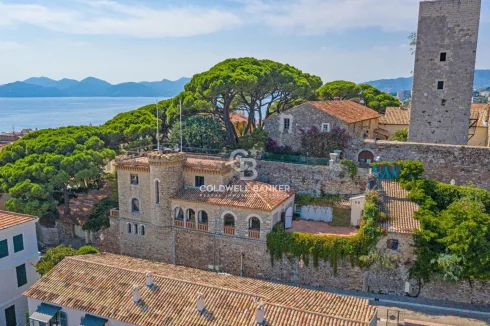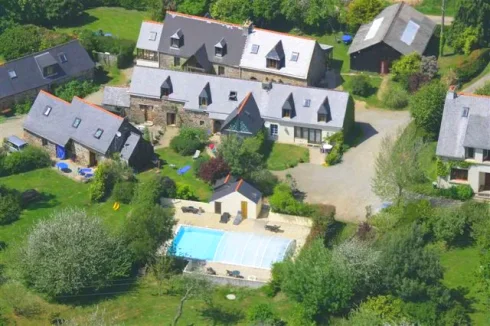What is happening to House Prices in France?
Tuesday 16 November 2010
The notaires appear to be having difficulty in establishing just what is happening to house prices in the French countryside.
In their latest report on the state of the housing market up to the end of June the notaires confirm the resurgence in sales that was recently reported by the French estate agents association, FNAIM.
Like the agents, the notaires consider that the number of sales this year is likely to be between 700,000-750,000 for the full year, still below the average for the period 2000-2007, when annual sales were above 800,000, but a significant increase on 2009, when sales fell to below 600,000.

Source: Insee
The notaires consider a large part of this sales growth is fiscally driven - historically low interest rates, the prospective end to mortgage tax relief, the increase in capital gains tax due in 2011, and the prospective reduction in tax breaks for investment properties.
Nick Pepworth of agents Kerizac Property Services, based in Brittany, says that part of the explanation for the increase in sales is also the more realistic price aspirations of sellers: 'We are seeing more activity, and I do sense sellers here now more clearly appreciate that if their property is correctly priced, then they increase their chances of finding a buyer', he says.
However, for the notaires, getting a handle on just what is happening to house prices in the countryside is a difficult task.
Overall they report that price of older homes across the country (excluding Paris) rose by an average of 2.2% in the second quarter. On an annual basis, prices outside of Paris rose by an average of 5.5%.
But outside of the main conurbations, the best that can be offered by them is a general guide to the movement in prices over the past year.
They state that in some departments, such as Creuse, Haut Loire and Ariege, house prices have risen on average by over 15%.
However, over the same period prices have fallen in many other departments.
The biggest falls have been in the Lozère, where prices are down by around 10%.
Price falls of between 5% and 9% have also occured in Landes, Lot-et-Garonne, Tarn-et-Garonne, Dordogne, Deux-Sèvres, Ardennes, Meuse, Allier and Nièvre.
Relative price stability has occured in Finistère, Morbihan, Calvados, Sommes, Indre, Cher, Loir-et-Cher, Hautes-Pyrénées, Hérault, Hautes-Alpes, Jura, Doubs, Bas-Rhin and Moselle.
As these figures include sales within urban areas, there is no direct correlation with what is happening to country properties, although as we have been reporting over the past months, the situation is generally no better, and is often worse.
The notaires do not explain why there should be such wide variations between the departments, and it is likely that one explanation is simply that there have not been enough comparable sales to make a full and accurate analysis.
In the departments of Alpes de Haute Provence and Cantal, for instance, the notaires state that the volume of sales has been so low that they are not even able to give any sort of indication as to what is happening to house prices.
On the Cote d'Azur, Alistair Buchan at Coast and Country, based in Mougins (Alpes-Maritimes), says that prices have not dropped dramatically during the crisis, but the gap between good quality property and the rest has widened. 'Prices for good, well placed property continues to rise, simply because there is not enough of it, and the planning constraints on new build mean that there is a shortage of supply.'
The following image shows the average percentage change in prices within each department for the period June 2009/2010. The figures are specifically for houses, not apartments.


Source: Notaires de France
The continuing strength of the market in many areas has become something of a puzzle for economists, most of whom have been predicting that prices would continue to fall.
Some are arguing that the increase is not sustainable, notably Mathilde Lemoine of HSBC, a housing economist who argues that the present growth is due mainly to temporary fiscal incentives and the current low level of interest rates.
Other economists also point to the level of debt of households in France, which, at 77% of disposable income, is the highest on record (although less than half of what it is in the UK!) and which they consider will inevitably act as a break on price growth.
However, Alistair Buchan at Coast and Country seems to express the view of many agents who are less convinced the 'economist' argument applies universally across the country: 'In those areas where there is strong demand (including that from international buyers), the market for good properties is less affected by the level of interest rates or government measures', he says.
In short, as always, it seems you need to examine closely what is happening locally.
Thank you for showing an interest in our News section.
Our News section is no longer being published although our catalogue of articles remains in place.
If you found our News useful, please have a look at France Insider, our subscription based News service with in-depth analysis, or our authoritative Guides to France.
If you require advice and assistance with the purchase of French property and moving to France, then take a look at the France Insider Property Clinic.





